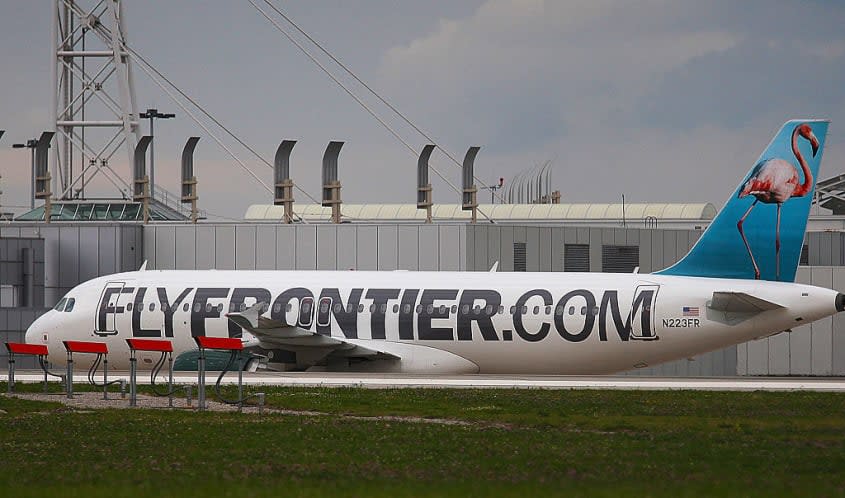Passengers use duct tape to hold down man accused of groping Frontier flight attendants

After a man on a Frontier Airlines flight from Philadelphia to Miami allegedly groped two flight attendants and physically assaulted another, passengers wrapped duct tape and a seatbelt extender around him so he couldn't get out of his seat.
The incident — the latest in an uptick of mid-flight altercations — took place late Saturday night, and the man, 22-year-old Maxwell Berry of Norwalk, Ohio, was arrested early Sunday when the plane landed at Miami International Airport. He has been charged with three counts of battery, NBC News reports.
The police report states that Berry drank two alcoholic beverages on the plane, and after ordering a third, spilled the drink on his shirt. He took off his shirt, and had to be told to take a fresh top out of his carry-on bag and put it on. Berry then began wandering around the plane, and allegedly groped two flight attendants, who asked a third crew member to keep an eye on Berry.
Berry then punched that crew member, the police report states. At this point, passengers got involved and helped a flight attendant "tape [Berry] down to the seat and tie him with a seatbelt extender for the remaining flight."
Frontier Airlines said the crew members involved have been put on paid leave, which is the company's standard procedure, while an investigation is conducted. A spokesperson told NBC News in a statement that the airline "maintains the utmost value, respect, concern, and support for all of our flight attendants, including those who were assaulted on this flight. We are supporting the needs of these team members and are working with law enforcement to fully support the prosecution of the passenger involved."
You may also like
Why Tom Brady's 'gentle' roast of Trump at Biden's White House was actually 'deeply vicious'
Israeli data suggest infected, vaccinated individuals have low chance of spreading COVID-19
How sociology shows 'policy makers have been looking at vaccine refusal all wrong'

